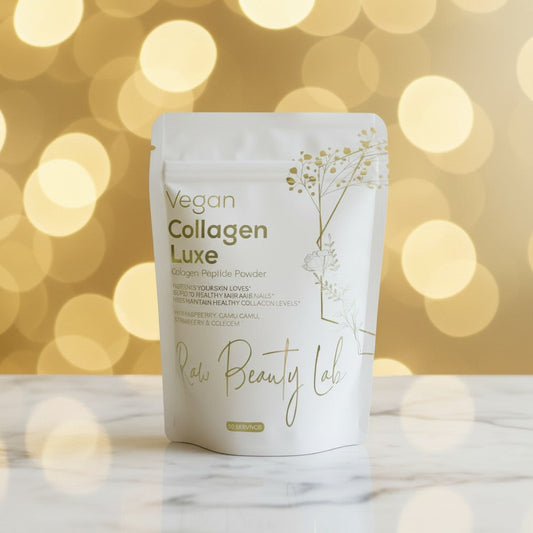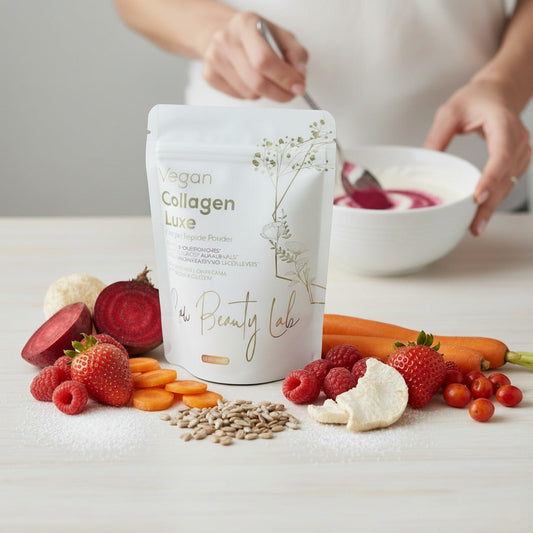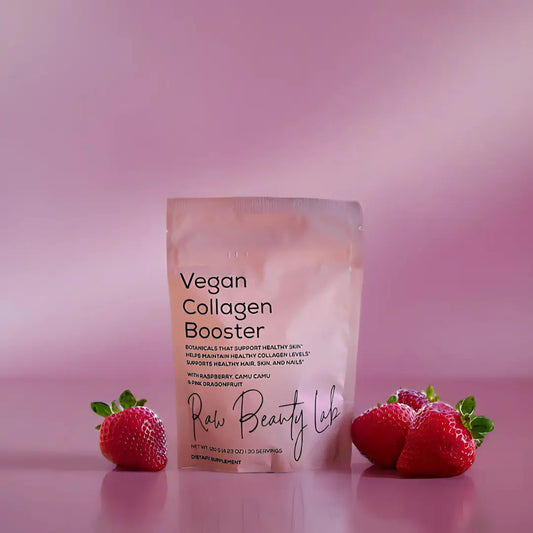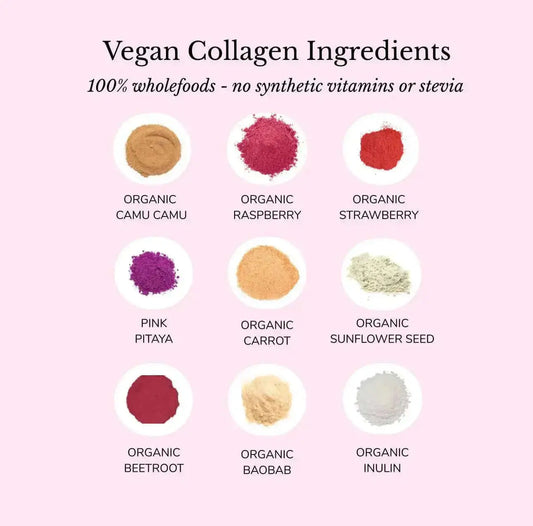Table of contents
Ah, the magic words: “youthful glow.” It’s what we all chase, right? But let’s skip the fairy tales and focus on something more tangible—the powerful world of vegan skincare actives. Whether you’re a vegan by choice or simply someone who wants to harness the goodness of plant-derived ingredients, there’s a bouquet of options ready to spruce up your skincare routine. Let's dive in.
The Radiance of Vitamin C: Your Skin’s Daytime MVP
Step aside, cup of morning joe; Vitamin C is here to energize our skin. Beyond brightening your complexion, the vitamin C skin benefits are numerous. This power-packed antioxidant fights free radicals—those pesky molecules that can wreak havoc—like a knight in non-shining armor. Studies confirm that Vitamin C can boost collagen production, reducing fine lines and adding firmness[^1]. It helps fade pesky dark spots and makes skin more even-toned, giving you that radiant glow.
Oh, and did I mention that it even enhances the effectiveness of sunscreen? Your skin will worship you—and the sun won’t touch you, not without permission.
Hyaluronic Acid vs. Glycerin: The Moisture Duel
If you've ever had dry skin, you know moisture is king. Enter two hydrating heroes: Hyaluronic Acid and Glycerin. Both are humectants, magic sponges that draw hydration to your skin. But which one should you swipe right on for that dewy look?
Hyaluronic Acid is like the overachieving friend who is constantly reforming the hydration limits. It can hold up to 1,000 times its weight in water! This makes it ideal for plumping up the skin and smoothing out those fine lines.
Glycerin, on the other hand, is the dependable friend who’s been around forever. It’s less flashy but no less effective in drawing moisture to the skin and working well even in lower humidity environments. It’s a budget-friendly choice that never disappoints.
So, which is better? Use them both! Layering can offer a complex hydration bouquet, perfect for keeping skin bouncy and glowing.
Natural Retinol Alternatives: Gentle, Yet Effective
Ah, retinol. The ingredient beloved for its miraculous ability to turn back the clock on skin aging. However, it’s a no-go for many vegans due to its animal-derived origins or synthetic production. Enter natural retinol alternatives: bakuchiol and rosehip oil, your kinder, gentler pals.
Bakuchiol: Derived from the Psoralea corylifolia plant, bakuchiol promises retinol-esque benefits like reducing wrinkles and improving elasticity, all minus the irritation[^2]. It’s gentle enough for sensitive skin and nighttime serenades with wonders.
Rosehip Oil: A treasure trove of fatty acids and vitamin A, rosehip oil brings similar advantages. It improves skin tone and texture while battling those fine lines, making it a great natural substitute for animal-based retinol.
Both actives might not be retinol’s identical twins, but they sure are its best plant-based cousins, providing smoother, more vibrant skin.
Peptides for Aging Skin: The Building Blocks of Youth
Want to bring the elasticity back to your skin? Peptides have got your back. These mini proteins are essentially messengers instructing your skin to amp up its collagen game. Peptides for aging skin work at a cellular level, plumping it up from within.
Scientific studies verify that peptide-rich skincare products can reduce fine lines and improve overall firmness[^3]. Over time, peptides even bolster the skin’s defense mechanism. So, think of them as your skin’s gym trainers, toning and firming to your heart’s content.
For those eager to experience the transformative powers of peptides, Vegan Collagen - Luxe offers an excellent peptide-packed potion, steering you clear towards a more youthful look.
Adaptogens for Skin: Zen meets Glow
Feel stressed? Well, your skin is, too. Turn to adaptogens, the yoga instructors of the skincare universe. These herbal marvels adjust to what your skin needs, calming inflammation and combating environmental stressors.
Ashwagandha and Reishi mushroom are powerhouses known for boosting the skin’s defensive wall against stress while revitalizing skin cells. Adaptogens for the skin can make it look balanced and glowing, like it just finished a six-week meditation retreat.
Summing It Up
The journey to a more youthful glow doesn’t involve hanging out under the knife or using non-vegan ingredients. Vegan skincare actives provide ample options to brighten, hydrate, and rejuvenate. With essential vitamins, hydrators, more natural alternatives to retinol, and age-defying peptides, your skin can achieve lasting luminosity.
So, next time you spot that youthful glow in the mirror, you’ll know it’s no magic—just the empowered results of fierce vegan skincare actives. Visit Raw Beauty Lab for products fueling the glow revolution.
[^1]: Kubicka, P. et al. “Vitamin C influences skin formation and collagen synthesis in humans.” Lancet Dermatology (2015).[^2]: Chaudhuri, R. et al. "Bakuchiol: A Retinol-Like Functional Compound.” British Journal of Dermatological Care (2017).[^3]: Maquart, F. et al. “Peptides and their role in skin repair and regeneration.” Journal of Peptide Science (2012).






